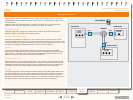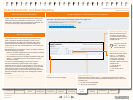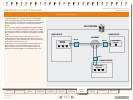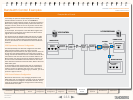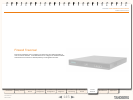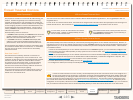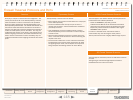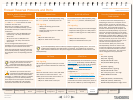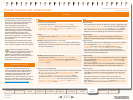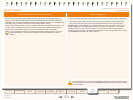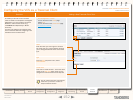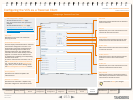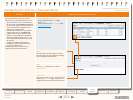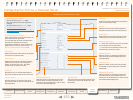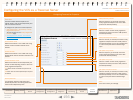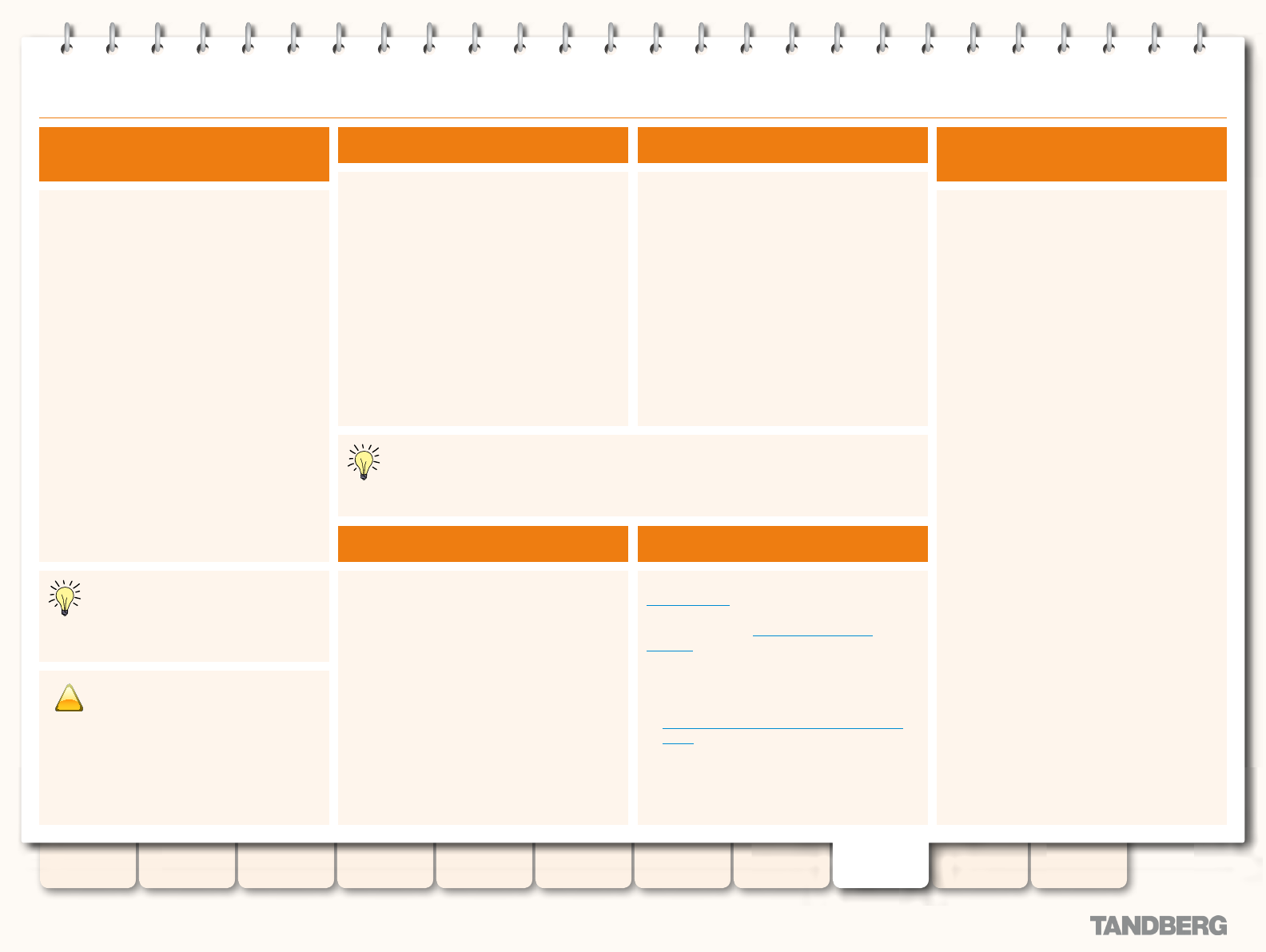
149
D14049.03
MAY 2008
Grey Headline (continued)
TANDBERG VIDEO COMMUNICATIONS SERVER
ADMINISTRATOR GUIDE
Introduction Getting Started
Overview and
Status
System
Conguration
VCS
Conguration
Zones and
Neighbors
Call
Processing
Bandwidth
Control
Firewall
Traversal
Maintenance Appendices
Firewall Traversal Protocols and Ports
Call signaling
SIP call signaling uses the same port as used
by the initial connection between the client and
server.
Media
Where the traversal client is a VCS, SIP media
uses Assent to traverse the rewall . The
default ports are the same as for H.323, i.e.:
UDP/2776: RTP media port
•
UDP/2777: RTCP media control port
•
!
The default port used for the initial
connections from MXP endpoints is the
same as that used for standard RAS
messages, i.e. UDP/1719. While it is possible
to change this port on the VCS Expressway,
most endpoints will not support connections to
ports other than UDP/1719. We therefore
recommend that this be left as the default.
Each traversal server zone species an H.323
port and a SIP port to be used for the initial
connection from the client.
Each time you congure a new traversal
server zone on the VCS Expressway, you will
be allocated default port numbers for these
connections:
H.323 ports will start at UDP/6001 and
•
increment by 1 for every new traversal
server zone
SIP ports will start at TCP/7001 and
•
increment by 1 for every new traversal
server zone.
You can change these default ports if
necessary but you must ensure that the ports
are unique for each traversal server zone.
Once the H.323 and SIP ports have been set
on the VCS Expressway, matching ports must
be congured on the corresponding traversal
client.
For connections to the VCS Expressway using
the H.460.18/19 protocols, the default ports
are:
Call signaling
UDP/1719: listening port for RAS messages
•
TCP/1720: listening port for H.225 protocol
•
TCP/2777: listening port for H.245 protocol
•
Media
UDP/2776: RTP media port
•
UDP/2777: RTCP media control port
•
For connections to the VCS Expressway using
the Assent protocol, the default ports are:
Call signaling
UDP/1719: listening port for RAS
•
messages
TCP/2776: listening port for H.225 and
•
H.245 protocols
Media
UDP/2776: RTP media port
•
UDP/2777: RTCP media control port
•
Ports for Initial Connections from
Traversal Clients
Assent Ports H.460.18/19 Ports
SIP Ports
In situations where the VCS Expressway is
attempting to connect to an endpoint on the
public internet, you will not know the exact
port(s) on the endpoint to which the connection
will be made. This is because the ports to
be used are determined by the endpoint and
advised to the VCS Expressway only once the
server has located the endpoint on the public
internet. This may cause problems if your VCS
Expressway is located within a DMZ (i.e. there
is a rewall between the VCS Expressway and
the public internet) as you will not be able to
specify in advance rules that will allow you to
connect out to the endpoint’s ports.
You can however specify the ports on the
VCS Expressway that will be used for calls
to and from endpoints on the public internet
so that your rewall administrator can allow
connections via these ports. The ports that
can be congured for this purpose are:
H.323
TCP/1720: signaling
•
UDP/1719: signaling
•
UDP/50,000-51199: media
•
TCP/15,000-19999: signaling
•
SIP
TCP/5061: signaling
•
UDP/5060 (default): signaling
•
UDP/50,000-51199: media
•
TCP: a temporary port in the range
•
25000-29999 is allocated.
STUN
3478/UDP (default): STUN Discovery
•
4678/UDP: (default): STUN Relay
•
60000-61200/UDP (default range): media
•
The VCS Expressway can be enabled to provide
STUN services (STUN Relay and STUN Binding
Discovery) which can be used by SIP endpoints
which support the ICE rewall traversal
protocol.
The ports used by these services are
congurable via:
VCS Conguration > Expressway > STUN
•
xConguration Traversal Server
•
STUN
The ICE clients on each of the SIP endpoints
must be able to discover these ports, either via
SRV records in DNS or by direct conguration.
Ports for Connections out to the
Public Internet
STUN Ports
If your VCS Expressway does not have any endpoints registering directly with it, and it has
no Alternates congured, then UDP/1719 is not required. You therefore do not need to
allow outbound connections to this port through the rewall between the VCS Control and
VCS Expressway.
You must allow outbound connections
through your rewall to each of the
unique SIP and H.323 ports that are
congured on each of the VCS Expressway’s
traversal server zones.



